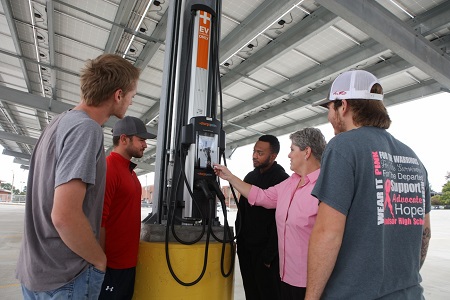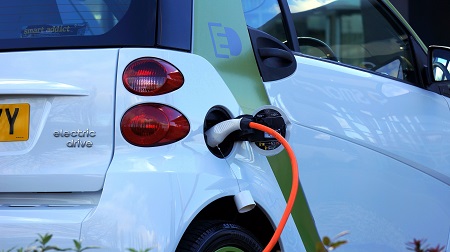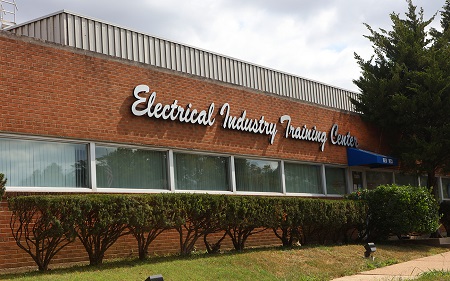 ElectricalConnection.org
ElectricalConnection.org
Connect with Us:
Facebook
LinkedIn
Twitter
YouTube
The Electrical Connection penned an op-ed in the St. Louis Post-Dispatch detailing an IBEW/NECA pioneering education program to serve the then emerging electric vehicle (EV) industry. Today, according to the Edison Electric Institute, more than 1.1 million electric vehicles were on the road in the U.S. in 2019. As more models are introduced every year, the number of electric vehicles on the road around the world will hit 125 million by 2030, according to International Energy Agency (IEA) forecasts. General Motors has announced plans to make a significant investment in fast-charging stations.

Dr. Linda Little helped develop the EV infrastructure curriculum at the IBEW/NECA Electrical Industry Training Center.
The IBEW/NECA training center’s first-of-its-kind Electric Vehicle Infrastructure Training Program (EVTIP) has been instrumental in supporting the growing EV industry and the hope of greater energy independence and environmental stewardship. Dr. Linda Little, assistant director of the training center, helped develop the EVITP national curriculum. She now is a member of the St. Louis Building Energy Improvement Board.
-Web.jpg)
IBEW Local 1 Union Hall features EV charging stations topped by a solar array.
The genesis of EVITP began in 2011, when key stakeholders in the EV industry –automakers, utility companies and charging station manufacturers – teamed with the electrical industry and the Electrical Connection IBEW/NECA partnership. Their goal was to establish a reliable national infrastructure installation standard for fixed charging stations that became EVITP. The standard included Article 625 of the National Electrical Code, which covers EV charging systems. Since then, more than 30 Electrical Connection/NECA-member electrical contractors have completed EVITP training, as have more than 100 IBEW electricians. By the end of 2021, the training center added 10 more instructors to its EVITP bringing its total to 15 instructors for the program.

EVITP ultimately helped establish the foundation of EV infrastructure in the home with fixed charging stations typically mounted to a garage wall. New home construction is witnessing an explosion of electric vehicle charging stations as standard options available to new home buyers

In the public sector, charging stations are growing at a rate of about 10 percent a year covering businesses, schools, rest stops, municipal and entertainment venues and more. EVITP has effectively addressed the more challenging issues in the public sector, including:
· Introducing more robust and reliable power supply to existing parking facilities.
· Engineering new construction projects to meet EV charging demands.
· Working with facility owners on intra-lot traffic flow, EV parking space signage, ADA compliance and how the overall configuration works for EV and non-EV drivers.
IBEW/NECA continues to adapt EVITP to innovations in EV infrastructure technology. This includes bidirectional charging where EVs can send energy back to the grid as they are being charged. In some EV models, the car becomes a mobile battery pack with the capacity to store energy that can be used in the event of a natural disaster that causes a blackout.
Search our “Find a Contractor” data base to connect with one of our highly skilled and safe contractors who are proficient in alternate energy and solar projects, including EV charging stations.Recent News